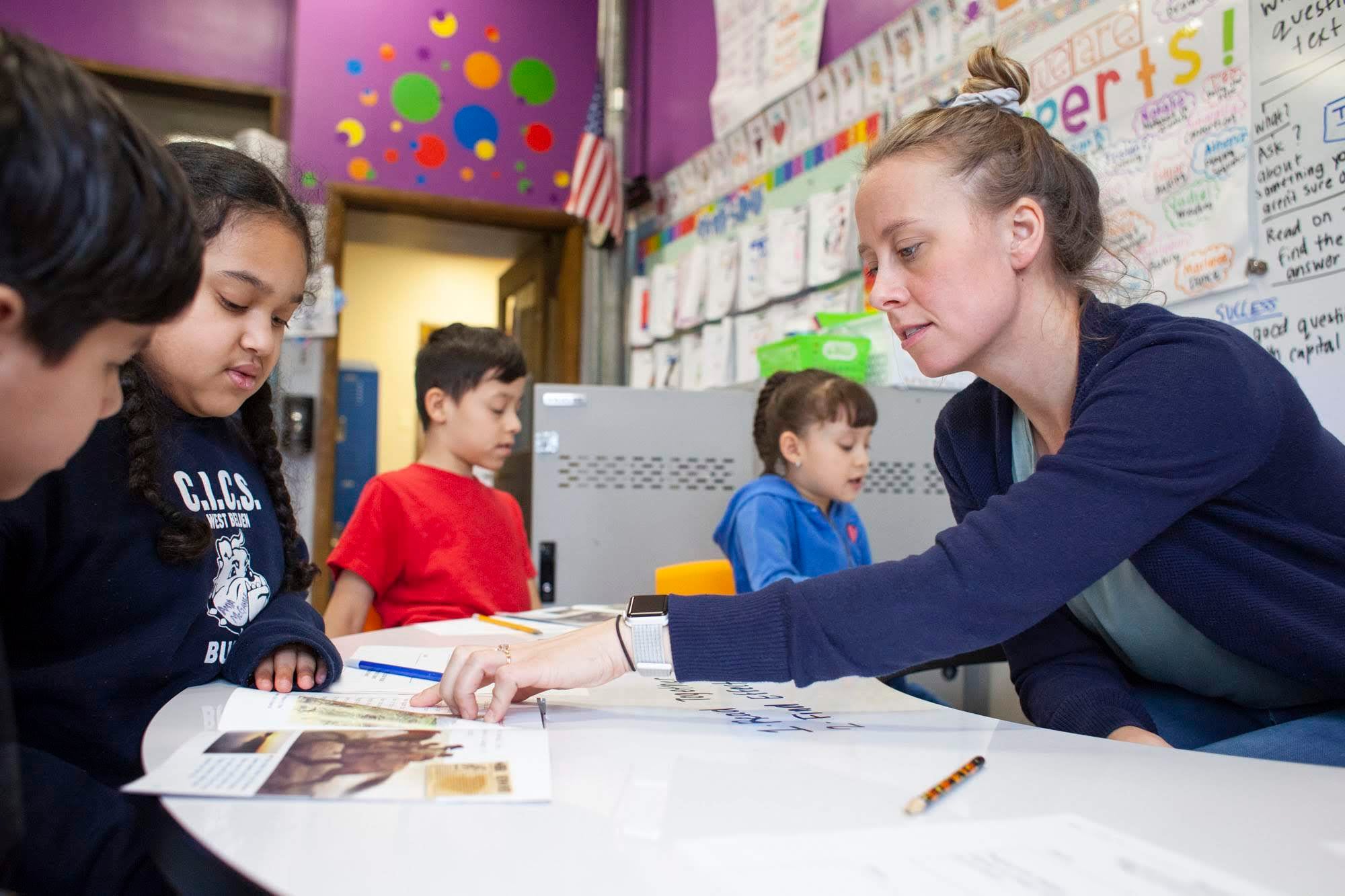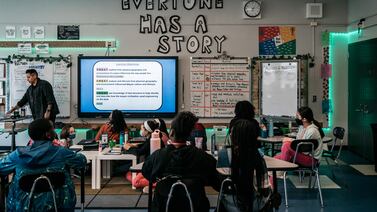For the second year in a row, Illinois school districts are being encouraged to evaluate teachers but will not be penalized for not doing so, the state board of education said Tuesday.
Last school year, when districts were mostly remote due to the coronavirus pandemic, the state board of education provided districts with some flexibility on how to evaluate teachers. At the time, members said they hoped 2021-22 would return to normal. But with districts currently struggling to reopen amid staff and food shortages, board officials argued Tuesday that it would be best to pause their evaluation system for another year.
“We know that our leaders are being substitutes, they’re driving buses, and handling so much more to address many of the challenges brought forth by the pandemic and meeting the needs of our students,” State Superintendent Carmen Ayala said at the meeting.
The decision to give districts flexibility on teacher evaluations is another example of how COVID-19 has disrupted accountability systems designed by states. It’s not clear yet whether Illinois will rate schools this year; it suspended its rating system last school year.
Board members Donna Leak, superintendent of Community Consolidated Schools District 168, and Roger Eddy, interim president of Lincoln Trail College in Robinson, said there was a need to be flexible on teacher evaluations as many district leaders and school employees are overburdened.
“I appreciate the consideration because this is something that will provide some relief to the folks that are finding it difficult to manage day to day,” said Eddy. “Summative evaluations are still there but it is a response to one of the needs in the field.”
Teacher evaluations have at times been a flashpoint between teachers unions and officials who argue that improving educator performance is a critical component of ensuring quality classroom instruction. In Chicago, the teacher evaluation system is based mostly on classroom observations of a teacher in action and growth scores on district-administered assessments.
Teacher evaluation scores can influence decisions about which teachers receive tenure and be used to identify educators for remediation and even dismissal.
A spokesperson for Chicago Public Schools said the district will evaluate teachers this year and will ensure probationary teachers and tenured teachers are evaluated annually.
Kathi Griffin, the president of the state’s largest teachers union, the Illinois Education Association, said schools will continue to assess teacher performance, but there won’t be a punitive element. They were a part of a statewide push last year to pause evaluation and give a default rating.
“The process in place will continue to provide educators feedback on their craft of teaching,” Griffin said.






